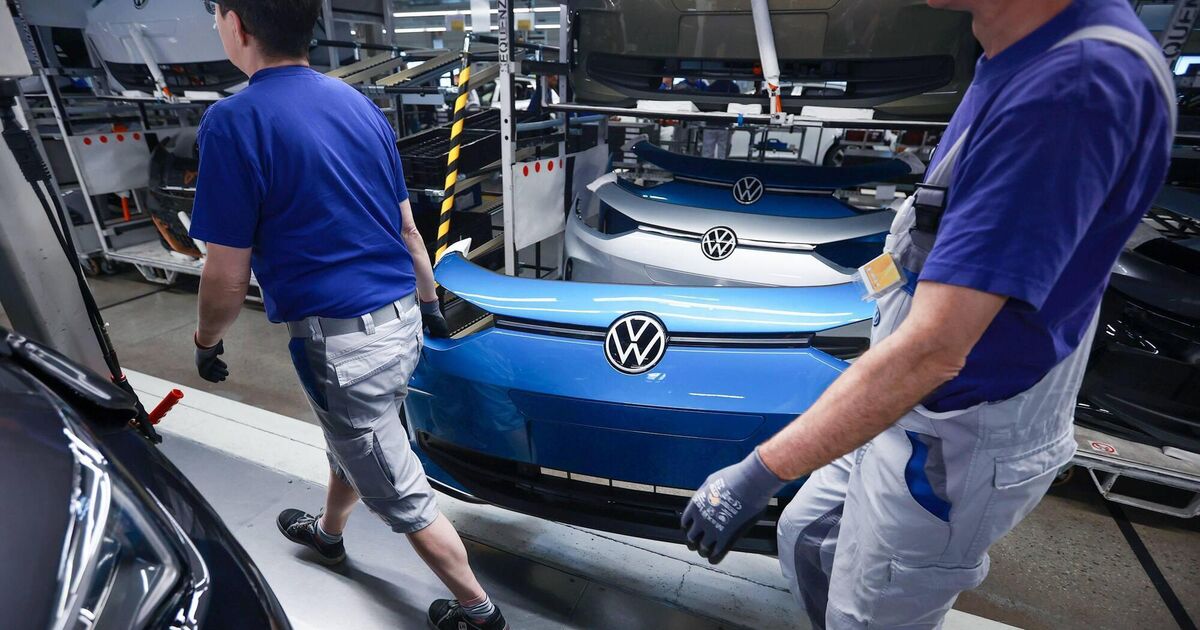The European Commission yesterday proposed removing tariffs on imported US industrial goods, part of a trade agreement with the US that should result in a retroactive lowering of tariffs on European cars.
The proposal is the first step in enacting the framework agreement between US president Donald Trump and Commission president Ursula von der Leyen on July 27, which saw the EU accept a broad 15% tariff to avoid a damaging trade war.
The US has agreed to reduce its tariffs on cars built in the European Union to 15% from 27.5% from the first day of the month in which the EU’s legislative proposal is presented – meaning from August 1.
Europe’s new-car market rose the most in 15 months in July, as consumers shrugged off concerns over the global economy to splash out on fully electric and hybrid models. Registrations climbed 5.9% last month from a year earlier — the steepest gain since April 2024 — to 1.09m units, the European Automobile Manufacturers’ Association said yesterday.
Plug-in hybrids made the biggest jump in July of 52%, as buyers increasingly opt for models that combine electric driving with a backup combustion engine. Sales of fully electric vehicles rose by more than a third, their best result since January.
As for manufacturers, Tesla continued to suffer.
Sales of the Elon Musk-led brand slumped 40% last month, giving it a market share of just 0.8%. Volkswagen, Ford Motor, and BMW had double-digit gains, while BYD’s deliveries more than tripled.
The data is a boost for the region’s beleaguered industry following a sharp drop in June. European automakers continue to face headwinds as US president Donald Trump’s tariffs disrupt supply chains while Chinese brands, led by BYD, gain ground with affordable EVs.
In Europe, the electric transition remains uneven.
The next big test comes at the IAA Mobility show in Munich next month — where BMW AG, Volkswagen AG, and Mercedes-Benz Group AG will seek to boost their EV credentials.
In Ireland, BYD has moved ahead of Tesla with 1,950 sales to the end of July — compared to Tesla’s 1,719.
European brands are increasingly pushing toward EVs, but they have also warned the EU’s ban on combustion engines is not realistic and is weakening an already fragile industry.
The European Commission has eased the pressure on carmakers by granting them a three-year window to hit stricter C02 emissions targets that had been due to take effect this year.
While demand for EVs and plug-in hybrids was strong, hybrid-electric models — those without a plug-in charger — continued to capture the largest slice of the European market, accounting for more than a third of new registrations.
Some countries are trying to jump-start EV demand by bringing back or extending subsidies. This includes Britain, which has reintroduced grants of as much as £3,750 (€4,338) to support EV purchases three years after the previous government ended subsidies for private buyers.
Separately, BMW chief executive Oliver Zipse expects a reordering of the car industry in the coming years. He warned that the sector cannot afford mistakes, as the company bets heavily on its revamped electric vehicle offering.
“There will be a selection process in our industry,” Mr Zipse told the Spiegel news magazine.
This, he said, was why the German carmaker decided five years ago to overhaul its portfolio with the new, fully electric Neue Klasse series, with which it hopes to catch up with Tesla.
